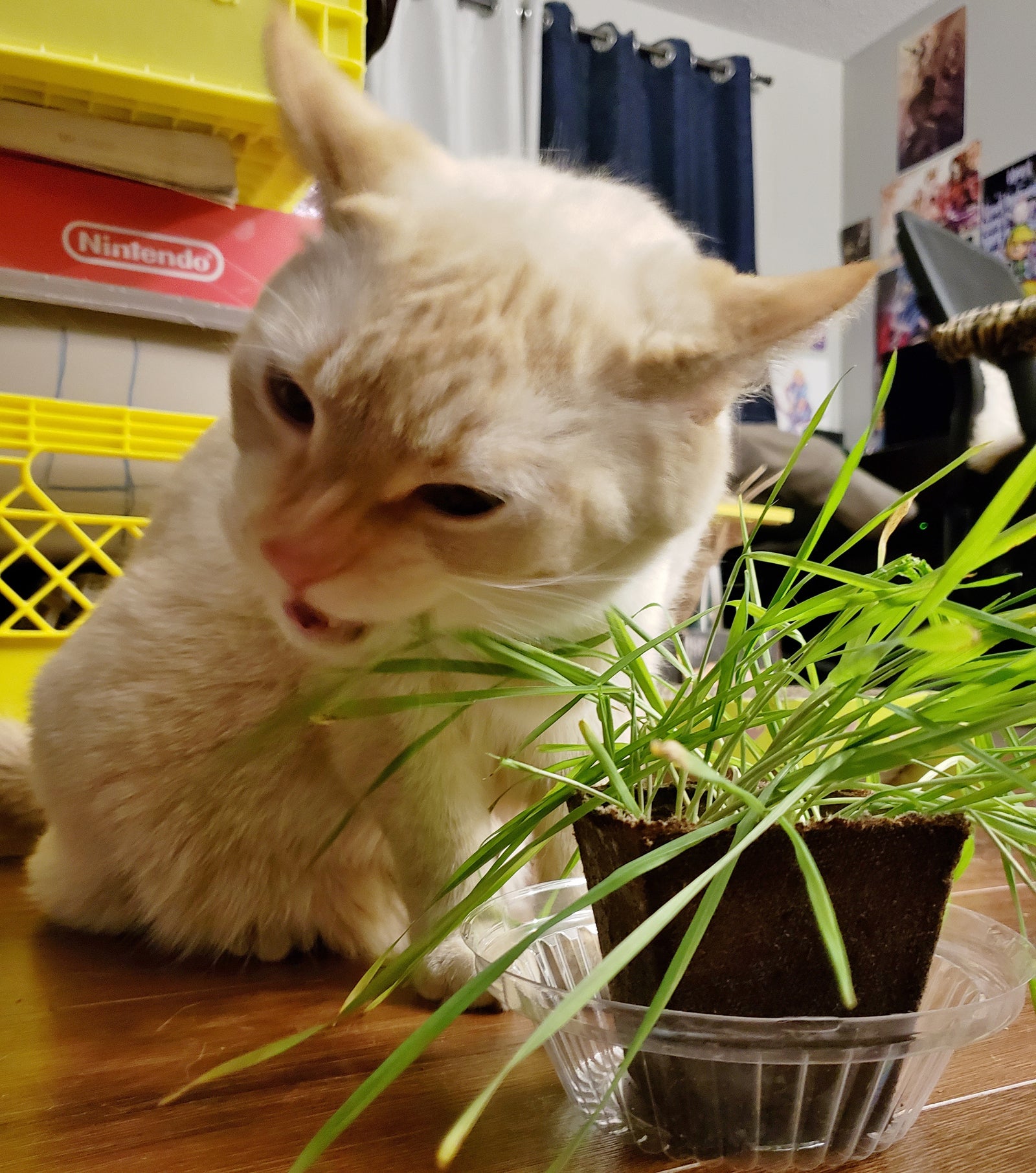Your Cart is Empty
Add description, images, menus and links to your mega menu
A column with no settings can be used as a spacer
Link to your collections, sales and even external links
Add up to five columns
Add description, images, menus and links to your mega menu
A column with no settings can be used as a spacer
Link to your collections, sales and even external links
Add up to five columns

Nutritious Plants Pets Love to Eat
May 25, 2023 3 min read
When it comes to creating a pet-friendly indoor environment, why not consider incorporating plants that not only bring joy to your furry friends but also provide nutritional benefits? It's possible to cultivate a garden that delights your pets' taste buds while offering them additional health advantages. In this blog post, we will explore a selection of plants that pets enjoy munching on while reaping the benefits of their nutritional properties. Discover the perfect balance between pet satisfaction and well-being with these beneficial plants.

Catnip (Nepeta cataria):
Catnip is a well-known favorite among cats. This aromatic herb induces a playful and euphoric reaction in many feline friends. While it offers entertainment, catnip also has nutritional benefits. It aids in digestion and can provide a natural stress reliever for cats. Growing catnip indoors allows your feline companion to enjoy this stimulating herb at their leisure.

Wheatgrass (Triticum aestivum):
Wheatgrass is a nutrient-dense grass that many pets, particularly cats, are instinctively drawn to. It provides essential vitamins, minerals, and chlorophyll, aiding in digestion and promoting detoxification. By growing wheatgrass indoors, you can offer your pets a safe and accessible source of this beneficial grass that they can nibble on to their heart's content.

Oat Grass (Avena sativa):
Similar to wheatgrass, oat grass is another nutritious option that pets, including cats and dogs, enjoy. Oat grass is rich in fiber, which aids digestion and helps prevent hairballs in cats. It can also provide a natural source of nutrients, such as vitamins A and C, for your pets. Growing oat grass indoors ensures a fresh and accessible supply for your furry friends.

Dandelion Greens (Taraxacum officinale):
Dandelion greens are not only safe for pets to consume but also highly nutritious. They are packed with vitamins A, C, and K, as well as calcium and iron. These greens offer various health benefits, including supporting healthy digestion and boosting the immune system. Growing dandelion greens indoors allows your pets to enjoy these beneficial leaves as part of their diet.

Rosemary (Rosmarinus officinalis):
Rosemary is a fragrant herb that adds a wonderful aroma to your indoor space. Cats and dogs are often attracted to its scent and enjoy nibbling on its leaves. Rosemary has antioxidant properties and may have anti-inflammatory effects, offering potential health benefits for your pets. Just ensure that the rosemary plant is grown without the use of pesticides or chemicals.

Parsley (Petroselinum crispum):
Parsley is a versatile herb loved by both humans and pets. It contains essential vitamins, including vitamin C and vitamin K, as well as minerals like calcium and potassium. Parsley can support fresh breath, aid in digestion, and provide antioxidant benefits. Growing parsley indoors allows you to easily incorporate it into your pet's diet or offer it as a treat.
Creating an indoor garden that includes plants pets enjoy eating can be a win-win situation. Not only do these plants satisfy your pets' taste buds and provide them with entertainment, but they also offer nutritional benefits. Catnip, wheatgrass, oat grass, dandelion greens, rosemary, and parsley are just a few examples of plants that pets can safely consume and potentially gain health advantages from. By incorporating these beneficial plants into your indoor space, you can provide your furry friends with a delightful and nutritious experience while promoting their well-being.
Subscribe
Sign up to get the latest on sales, new releases and more …
